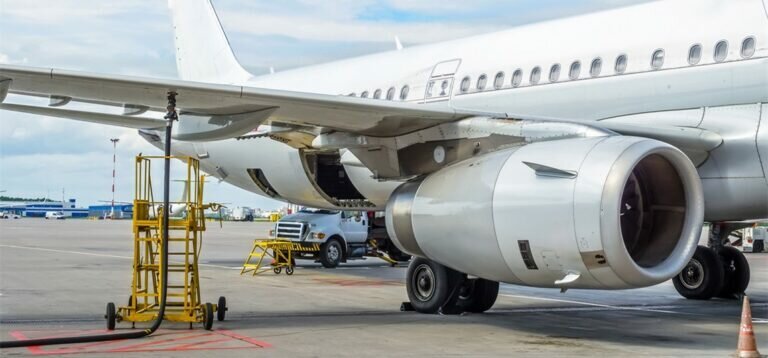BMW Allegedly Part of Manufacturing Giants’ Collusion on Clean Tech
As car manufacturers compete to create better and more efficient engines, a new scandal has emerged in the automotive industry. Three of the largest car manufacturers in the world, BMW, Volkswagen, and Daimler, are accused of conspiring to avoid competing for new AdBlue technology.
AdBlue technology is used to reduce harmful diesel emissions from engines. The process involves injecting AdBlue, a chemical compound of urea and water, into the exhaust system, which converts toxic nitrogen oxide emissions into nitrogen and water. This technology has become increasingly crucial in reducing diesel emissions. However, AdBlue technology is expensive to manufacture, install, and maintain, which makes it a significant challenge for manufacturers to adopt.
To avoid competing for this expensive technology, BMW, Volkswagen, and Daimler allegedly formed a cartel to share costs and avoid individual investments. They reportedly coordinated with each other on the pricing of AdBlue systems. They allegedly conspired to avoid using a smaller AdBlue tank, which would have forced them to compete more on technology. These actions reportedly violate European Economic Area regulations, prohibiting anti-competitive behaviour and price fixing.
The implications of this violation are vast. The European Union levied a record-breaking fine of €875 million (approximately £760 million) on the involved car manufacturers as a penalty for their actions. This fine shows how severe the EU regards anti-competitive behaviour. Furthermore, this scandal has called into question the safety of diesel cars, which was already under scrutiny due to the Volkswagen scandal in 2015.
The 2015 Dieselgate scandal
The Dieselgate scandal resulted from Volkswagen’s fraudulent activities related to diesel emissions. In 2015, the International Council on Clean Transportation conducted a study that found that Volkswagen’s diesel cars emitted far more pollutants than the company claimed.
This set off an investigation by the Environmental Protection Agency of the United States, which found that Volkswagen had installed defeat devices in its diesel vehicles that could detect when the cars were undergoing an emissions test. When the cars were being tested, the defeat device would alter the engine’s performance to reduce emissions, but during normal driving, the device would deactivate, causing the cars to exceed legal limits, emitting up to 40 times more pollutants than permissible.
The Dieselgate scandal had far-reaching consequences; Volkswagen was forced to recall millions of vehicles worldwide and pay billions of dollars in fines and settlements. The organization suffered a significant hit to its reputation, resulting in a sharp decline in its stock value. The scandal also impacted other automakers, as regulators began investigating other manufacturers, with BMW diesel emissions being one of them.
However, the carmaker giant denied the allegations and insisted that its vehicles comply with all legal requirements. The company did not explicitly comment on the BMW emission claims. Still, it stated that its vehicles have state-of-the-art emission control systems that meet the highest environmental protection standards.
BMW maintained that the accusations made by Deutsche Umwelthilfe were unfounded and that the company would fight the allegations in court if necessary. In response to the claims, however, BMW voluntarily recalled 11,700 cars for software updates to their engine management systems.
The Dieselgate scandal led to a shift away from diesel vehicles, with many people losing trust in the technology. It also resulted in a major shakeup at Volkswagen, with several high-ranking executives resigning or being fired.
However, some positive developments have come from this scandal. The EU has increased regulatory oversight and enforcement of competition laws, ensuring these violations do not occur again. Furthermore, this scandal has raised awareness of the growing need for more sustainable transportation options, such as electric or hybrid cars.
Importance of filing an emissions claim
A diesel emissions claim is a legal action against a manufacturer, supplier, or other party responsible for producing diesel engines emitting harmful pollutants into the air. These claims are typically filed by individuals or organizations directly impacted by these emissions, such as those who own affected diesel vehicles, live near major highways, or work in industries that rely heavily on diesel engines.
One of the primary reasons why filing one is so important is that it can help hold these companies accountable for their actions. By taking legal action, individuals and organizations can ensure that companies are held responsible for their role in contributing to harmful emissions. This, in turn, can encourage companies to become more socially responsible by investing in cleaner, more sustainable technologies.
It has a significant impact on public health. By raising awareness of the harmful effects of diesel emissions, these claims can help promote public dialogue and action around this critical issue. It can provide financial compensation for those impacted by diesel emissions.
Individuals and organizations who are successful in their claims may receive compensation for medical expenses, lost wages, and other damages resulting from exposure to diesel emissions.
How do I start my diesel claim?
If you are a diesel vehicle owner impacted by emissions issues or know someone who has, filing a diesel claim may be a viable option to get the compensation you deserve. You can find all the necessary information by visiting ClaimExperts.co.uk. Visit their website here – https://www.claimexperts.co.uk/bmw-diesel-emissions-claims/.
Diesel emissions lawsuits can be lengthy and complex, and it’s essential to be patient throughout the process.







